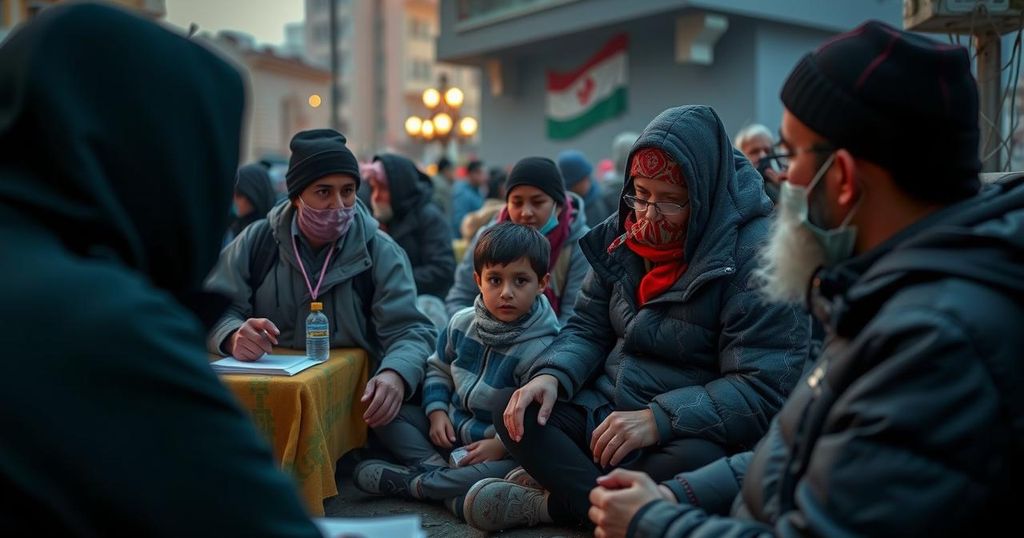Bangladeshi evacuees fleeing Israeli airstrikes in Lebanon describe harrowing experiences of survival and loss. Morium Begum, Shila Khatun, and Mohammad Uzzal recount their escapes from danger as the ongoing conflict has resulted in widespread casualties and the destruction of civilian infrastructure. With significant challenges on repatriation due to lack of documentation, their stories highlight the plight of migrant workers caught in warfare.
In the face of the relentless Israeli airstrikes ravaging Lebanon, Bangladeshi evacuees have shared harrowing accounts of their experiences. Among them is Morium Begum, a mother of two who was working as a housekeeper in Nabatieh. The bombings intensified in late September, prompting her to flee. “There were huge explosions everywhere and continuous bombing around me,” she recounted to Arab News, describing the terrifying circumstances that compelled her to leave the location she once called home. Begum journeyed to Saida, located 30 kilometers away, where the Bangladeshi embassy and local NGOs have provided shelter for approximately 300 fellow Bangladeshi migrant workers. Reports indicate that between 70,000 and 100,000 Bangladeshi nationals reside in Lebanon, often without official documentation, complicating their repatriation amid airport closures and the broader conflict. Having spent 14 years abroad, Begum returned to Bangladesh without her belongings. “The situation was very, very dangerous. I didn’t even get the chance to bring any clothes with me,” she remarked. Thoughts of her home’s fate lingered as she expressed gratitude for her survival, despite the losses endured. Shila Khatun, who also fled to Saida, noted that the house where she worked had been reduced to rubble. In her traumatized state, she exclaimed, “It was like hell on earth,” recalling the frightening moment a bomb struck nearby. Mohammad Uzzal, another evacuee, described how he narrowly escaped peril. He was fortunate that his employer rescued his belongings and provided financial support upon reaching safety. “I have two small children. Every moment, I prayed to Allah to grant me a few days more on this earth to look after my children,” Uzzal said, emphasizing his relief at surviving what he perceived as a second chance at life. The death toll from Israel’s operations has surpassed 2,600, with over 12,200 injured, raising concerns over civilian casualties and the safety of humanitarian workers.
This report highlights the anguish experienced by Bangladeshi nationals in Lebanon, amidst escalating Israeli airstrikes that have devastated areas, leading to significant loss of life and infrastructure. As conflicts unfold, many migrant workers find themselves in perilous situations, relying on embassies and NGOs for shelter and support during crises. The challenges of repatriation due to bureaucratic barriers further compound their anguish, underscoring the vulnerability of migrant populations caught in conflict zones.
The narrative of Bangladeshi evacuees fleeing violence in Lebanon illustrates the profound impacts of armed conflict on vulnerable populations. With ongoing airstrikes leading to devastating losses, these individuals face the dual challenge of insecurity and loss of assets as they seek refuge and hope for a safe return to their home country. Their resilience in the face of adversity shines a light on the urgent need for assistance and protection for those affected by warfare.
Original Source: www.arabnews.com






